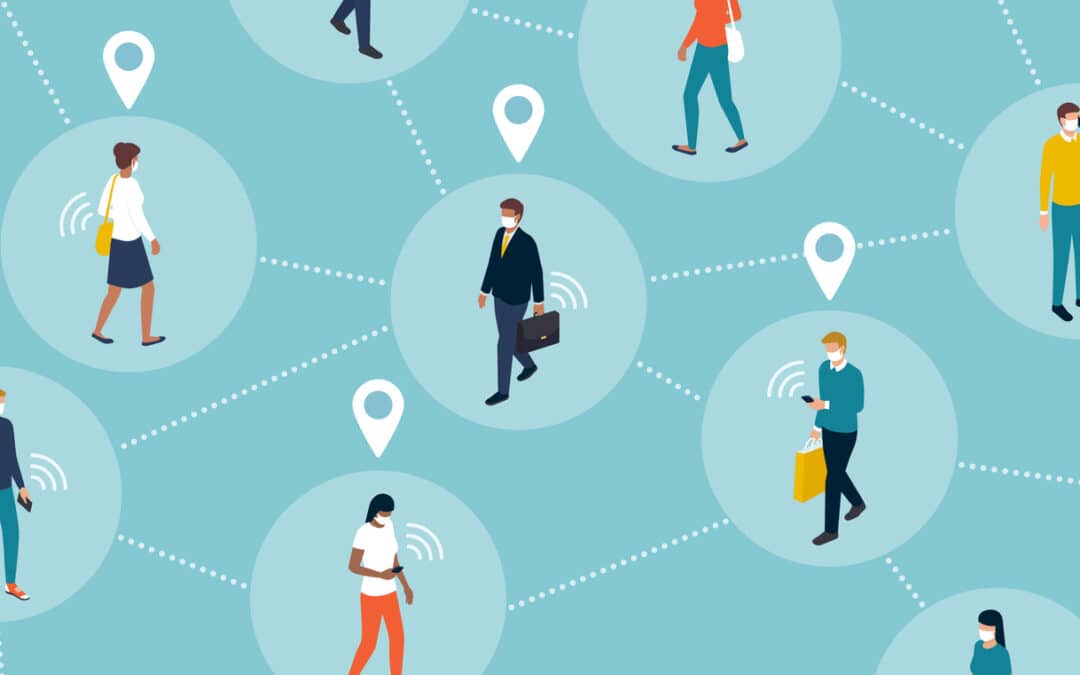The coronavirus has unquestionably changed the way we live. It has also forced us into strange and, until just a few weeks ago, unthinkable ethical dilemmas. To visit loved ones is worth genuine ethical reflection. Modern nations, especially in the West, are built on an ethics of individual freedoms and the right to privacy. However, the current global health crisis is forcing us to rethink just how fundamental those ethics should be. While we already feel this with regards to the freedom of movement, we are just beginning to contemplate how the coronavirus can and should effect our right to privacy.
Contact Tracing and Enforced Quarantine
In order to limit the spread of the coronavirus, experts emphasize the importance of tracking every contact infected patients have had with others. Countries such as China, Singapore, South Korea, and Taiwan have all taken aggressive measure trace all potential contact infected people have had. These measures are widely considered to be a large reason why these countries have been successful in lowering the rate of transmission. However, the aggressive measures taken have come at the cost of individual privacies.
Taiwan and Singapore, for example, regularly post detailed information about everyone who test positive, including where they live and work, what train stations they have used, and what bars and restaurants they frequent. South Korea now has an app that allows users to track the exactly movement of those infected.
Countries are also using location data to enforce quarantine for those infected. Israel, for example, is now using data collection techniques previously used for counterterrorism efforts to identify anyone potentially exposed to the virus. The government uses this information to send text messages to those exposed ordering them to quarantine.
European and the U.S. Response
As the coronavirus spreads to Europe and the U.S., lawmakers are exploring the use of similar techniques. Italy now uses location data to monitor whether people are obeying quarantine orders. In the U.S., the White House is reportedly in conversations with tech companies to use anonymized location data to track the spread of the virus. HIPPA regulations are being waived to allow doctors and mental health providers to more freely use telecommunication to speak with patients. Companies in Italy, Austria, and Germany have also announced that they will provide location data to governments.
However, with privacy regulations such as the GDPR, it is unclear how aggressively European countries will be able to use personal information. The European Data Protection Board (EDPB) released a statement urging governments to continue to abide by privacy regulations in place. At the same time, however, the EDPB conceded that countries may suspend such regulations “when processing is necessary for reasons of substantial public interest in the area of public health.”
Consequences
Relaxing the right to privacy has garnered mixed responses by government officials and security experts. Many have pointed out that while the measures taken are extreme, personal information such as location data is highly effective in limiting the spread of the coronavirus. “We are stretched very thin in most states,” said the director of the Center for Global Health at Oregon State University, “so this kind of technology can help every state to prioritize, given their limited resources, which communities, which areas, need more aggressive tracking and testing.”
Others are concerned how this could endanger those whose information is made public. In South Korea, some have used information released by the government to identify infected individuals and attack them online. This has led officials to question how the government uses this information, worrying it will discourage others from getting tested for fear of being publicly exposed.
While nearly all countries have explained suspending the right to privacy is a temporary measure for the benefit of the public health, many worry it will have a permanent effect on how governments and countries view privacy concerns. After 9/11, for example, the U.S. used highly invasive surveillance measures that have since become common place among law enforcement agencies. According to the New York Times, privacy experts worry something similar could happen after the current crisis.
What restrictions we, as a society, can tolerate, and what effect this will have after the current crisis remains an open question. However, it may also involve a false choice. There are technologies to both assist contract tracing and preserve anonymity. Privacy by Design does not have to be put on pause as we develop these tools. In fact, if we want to encourage wide adoption, it might be required.
Subscribe to our blog here: https://mailchi.mp/90772cbff4db/dpblog
